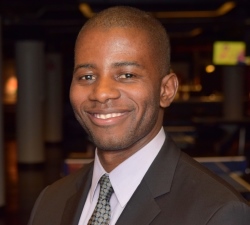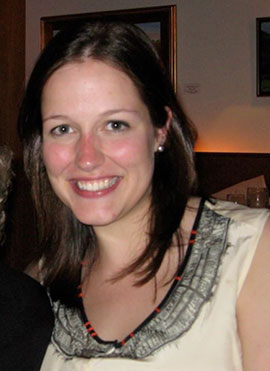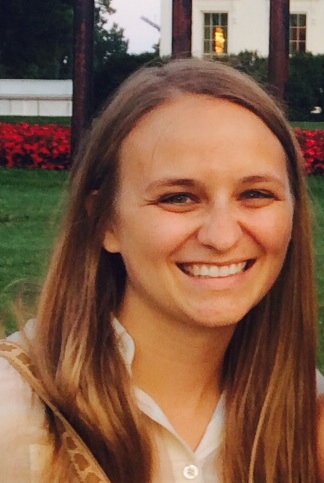Alumni Profiles
Roland Grant ’10

JOB TITLE: Senior analyst
ORGANIZATION: Goldman, Sachs & Co.
LOCATION: New York City, New York
What was your first position after college? I worked as a project assistant at the law firm WilmerHale, which essentially means I was a junior paralegal. At WilmerHale, I worked on a variety of high-profile cases and gained a lot of exposure as to how a major corporate law firm operates. Additionally, I worked side by side with experienced attorneys and developed a better understanding of the day-to-day tasks that attorneys face in the corporate environment.
Has a liberal arts education helped you in shaping your career? A liberal arts education has strengthened my critical thinking skills. I’ve utilized those skills to properly assess what I want out of my career. My experience at Trinity enabled me to set short- and long-term goals and evaluate what’s important to me in my career development.
What aspects of your Trinity experience have been important to advancing your career or graduate school experience? I was very active at Trinity. Playing soccer at Trinity taught me that success only comes with hard work. I also learned the lesson of perseverance through various injuries I sustained as a collegiate athlete. I founded Trinity’s mock trial team. It took incredible effort to get the program off the ground, and now it competes annually in the national collegiate tournament. It has also become a draw that Trinity endorses to prospective students. The work I put into that team taught me the importance of organization. Lastly, I was head tutor of the Writing Center and a member of Trinity’s Habitat for Humanity group. My experience as a head tutor built a foundation of attention to details and focus, which I still use today. Habitat for Humanity enforced my belief in civic duty.
At the time, I wasn’t sure how my many experiences at Trinity would be applicable to my future in the real world, but I can say they all have been critical. I was a member of the Black Professionals Network at Credit Suisse and chaired both the Internal and External Relations committees. I wouldn’t have had the skills and confidence necessary to succeed in those roles without my experiences at Trinity.
What advice would you give to Trinity students to prepare for a position in your field? Think about your future before you hit senior year. I think the ultimate goal after Trinity is to do what you love. If you do so, you’ll never have to work a day in your life. Take classes on subjects that interest you. You’re not going to have all the answers right after graduation. You’re not supposed to either. But it’s important to at least identify interests that you can turn into careers.
What is the biggest misconception about your field? The biggest misconception is that the workload of a paralegal is fairly easy and straightforward. Perhaps it varies from firm to firm, but during my time at WilmerHale, I often worked very long days. There were nights when I didn’t leave the office until midnight, 1:00 a.m., or even 3:00 a.m. I also traveled back and forth from Geneva, Switzerland, to NYC for an entire summer. That was a great learning experience but definitely demanding.
Meredith Reeves ’06

JOB TITLE: Trial attorney
ORGANIZATION: Salem Superior Court Office of the Committee for Public Counsel Services (Public Defender Division)
LOCATION: Salem, Massachusetts
GRADUATE DEGREE: J.D., Suffolk University
What was your first position after college? My first job after graduation was as a litigation legal assistant at Cravath, Swaine & Moore LLP in New York City, a large law firm that specializes in commercial securities litigation. I learned about the position through a recent Trinity alum who was working there at the time. She helped me with the application process.
Has a liberal arts education helped you in shaping your career? My liberal arts education has been instrumental in shaping my career! In particular, the writing skills that were emphasized in nearly all of my courses at Trinity–both within my major and elsewhere–have helped me tremendously in each job I’ve had since graduation, in addition to law school.
What aspects of your Trinity experience have been important to advancing your career or graduate school experience? I had the opportunity to do extensive research with two professors within the Public Policy and Law Department one summer. This experience has proven extraordinarily useful in similar projects and assignments I’ve undertaken since graduation. The broad array of subjects I was exposed at Trinity has also opened me up to many different types of jobs and programs. Starting with my first job as a paralegal at a huge private law firm, the online research skills and basic knowledge of the American legal system I acquired at Trinity gave me a big leg up in the very foreign world of corporate litigation. However, it wasn’t until my second job as a legislative aide in the Massachusetts House of Representatives that I really began to tap into the extraordinary base of research and writing skills and public policy knowledge that I had learned at Trinity.
I can’t begin to say how helpful my liberal arts education was when I went on to law school. I already had such a comprehensive understanding of constitutional law and the legal system in general, terrific writing experience, and such a well-honed set of research, reading, and study skills that I was able to tackle many of the challenging aspects of law school with greater ease than some of my peers.
What advice would you give to Trinity students to prepare for a position in your field? No matter what your major is, take some English and other writing-intensive classes–it’s impossible to overstate how important writing skills are in all public policy or law-related jobs. And if you have the opportunity, try to do a substantial research project with a professor within the Public Policy and Law Department. It’s very helpful to be able to talk about an independent and sophisticated research project that you took on as an undergraduate as you market yourself in the job search, especially early on.
My final advice for students is to get to know Trinity professors–one of the outstanding things about the College is how accessible the instructors are to students and how eager they are to be involved in students’ lives and budding careers.
Mary Morr ’12

JOB TITLE: Community outreach coordinator
ORGANIZATION: Denver Public Schools/GEAR UP
LOCATION: Denver, Colorado
GRADUATE DEGREE: M.S.W., University of Wisconsin-Madison
What was your first position after college? After graduating, I went directly to pursue a master’s degree in social work. I knew that I wanted a career tackling social issues and serving marginalized and oppressed populations. With my Trinity credentials, I was accepted into all three schools I applied to and was even offered a scholarship at the top school of social work in the country. I decided to attend the University of Wisconsin-Madison because of the program’s strong emphasis on issues relating to children. After completing my master’s in social work, I accepted a position as a community outreach coordinator for Denver Public Schools. I work under GEAR UP–a grant aimed at increasing college enrollment among low-income students–to analyze and address school, family, and community-level barriers to success for disadvantaged students.
What aspects of your Trinity experience have been important to advancing your career or graduate school experience?For me, the two most helpful parts of Trinity’s liberal arts education were that it was interdisciplinary and that it included Community Learning. Graduating from an interdisciplinary major gave me a broad perspective on the work I that I do. I have an appreciation for the fact that real-world problems do not exist in a vacuum and that finding solutions requires examining multiple perspectives and collaborating with a variety of stakeholders. Community Learning helped me shape my career goals by giving me the opportunity to experiment with multiple potential jobs as an undergraduate. By working in several different types of positions, I was able to gain a greater sense of my interests and skills. As a result, I feel more confident that the career path I am pursuing is both one that I will find fulfilling and one in which I can be impactful.
What advice would you give to Trinity students to prepare for a position in your field? Students who hope to pursue a career in public policy need a broad understanding of the way policy and practice actually work in the United States. Simply learning theories is not enough, as social, cultural, and political factors will always make things more complicated. My advice would be for students to read the news daily and take as many Community Learning classes as possible to gain this real-world perspective.
What is the biggest misconception about your field? Many students think that the public policy and law major is only for people interested in attending law school after graduating from Trinity. At no point did I ever have an interest in law school, but I still found the major to be perfectly suited to my academic and career goals. Policy affects everything that happens in our country, and the opportunities that can arise from a public policy and law degree are extremely expansive.
